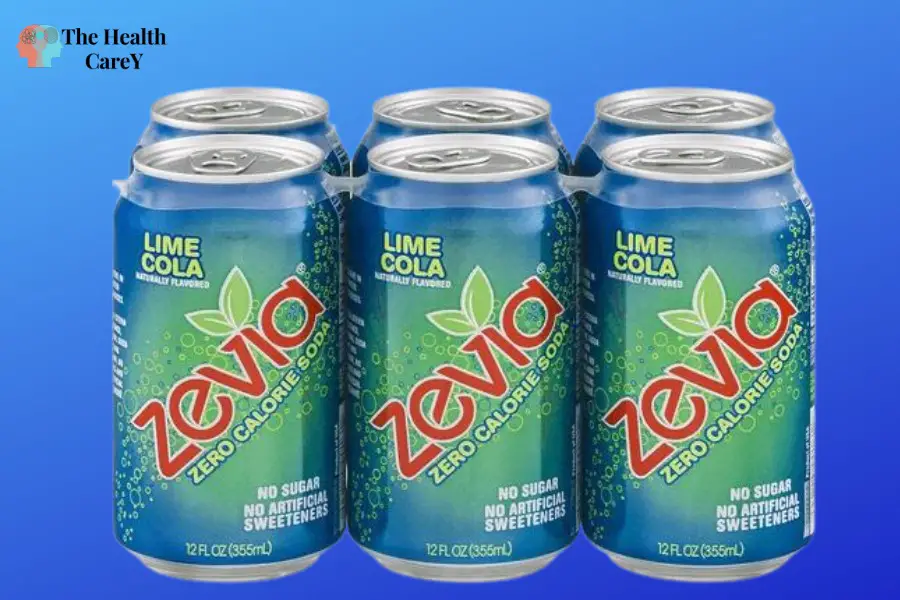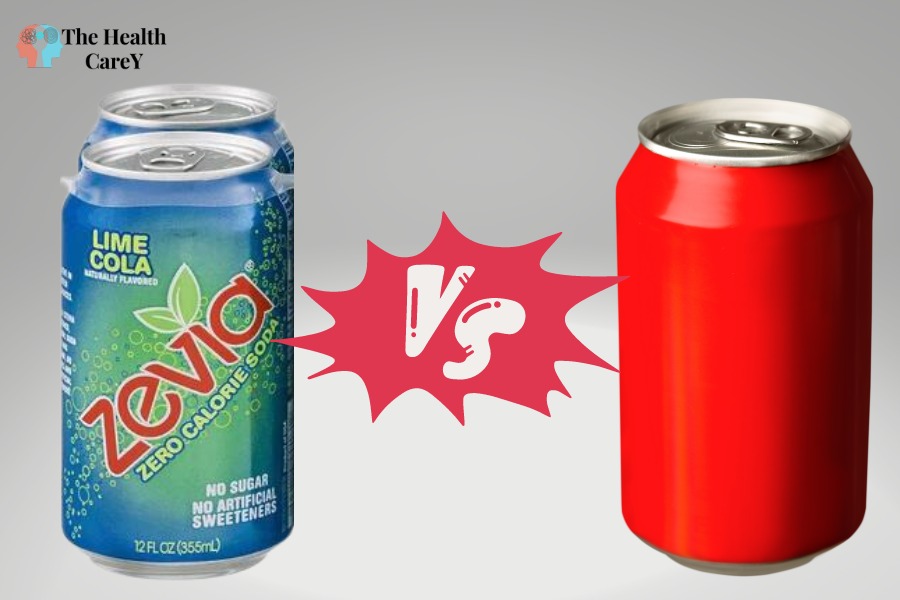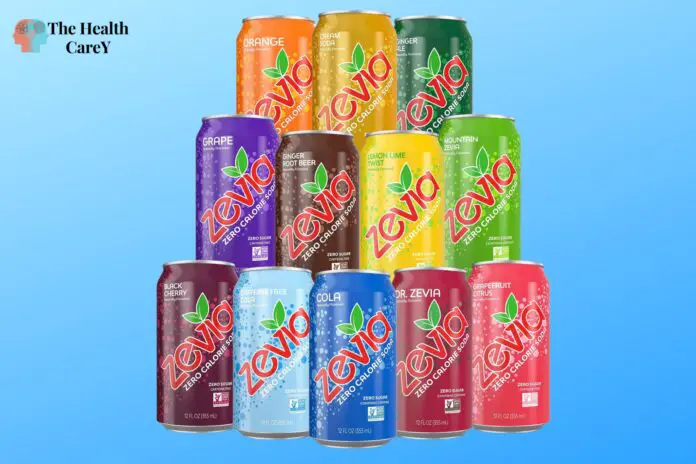Is Zevia Soda Bad for You? Examining the Health Effects of This Popular Beverage
Are you looking for a healthier alternative to traditional soda? Zevia soda is a popular choice among those trying to cut back on sugar and artificial sweeteners. But is Zevia soda bad for you? Let’s look at the ingredients and what medical research has to say.
Zevia soda is marketed as a zero-calorie, naturally sweetened soda alternative. The brand claims its drinks contain natural ingredients and no artificial sweeteners, colors, or flavors. But while Zevia may seem like a healthier choice, it’s important to examine the ingredients and potential health effects. In this article, we’ll review the research on Zevia soda to help you decide whether it’s a good choice.
What is Zevia Soda?
If you’re looking for a zero-calorie soda free from artificial sweeteners, Zevia Soda may be your drink. Zevia Soda is a brand of soda that is sweetened with stevia, a natural sweetener derived from the stevia plant. Unlike traditional soda, Zevia Soda contains no sugar or artificial sweeteners, making it a healthier alternative.
Zevia Soda has various flavors, including cola, ginger ale, cream soda, and black cherry. All the flavors are carbonated and made with natural flavors, meaning they don’t contain any artificial flavorings. The soda is also free from artificial colors and preservatives, making it a healthier option for those who want to avoid these additives.
One of the main benefits of Zevia Soda is that it is zero-calorie, which means that it won’t contribute to weight gain. This makes it a good choice for those trying to lose or maintain a healthy weight. The soda is also free from caffeine and won’t interfere with sleep or cause jitters.
Overall, if you’re looking for a zero-calorie soda free from artificial sweeteners and made with natural flavors, Zevia Soda is worth considering. With various flavors, you’re sure to find one you enjoy.
Is Zevia Soda Bad for You?
If you are wondering whether Zevia soda is bad for you, the answer is no, it is not. Zevia is a proprietary brand of zero-calorie soda that is sweetened with stevia, a natural sweetener derived from the stevia plant leaves. Stevia has been used as a sweetener for centuries and is generally recognized as safe by the FDA.
However, as with any food or beverage, moderation is key. While Zevia is a healthier alternative to traditional soda, it is still important to consume it in moderation. Drinking too much soda, even one sweetened with a natural sweetener like stevia, can have negative health effects.
It is important to note that while Zevia is a healthier alternative to traditional soda, it is not a portion of healthy food. It is still a carbonated beverage that should be consumed in moderation. If you have any concerns about your health or the effects of Zevia on your body, it is best to consult a doctor.
In terms of dosage, it is recommended that you consume no more than 4-5 cans of Zevia per day. This aligns with the recommended daily intake of stevia, which is 4 milligrams per kilogram of body weight.
In summary, Zevia soda is not bad for you when consumed in moderation. It is a healthier alternative to traditional soda but should still be consumed in moderation. If you have any concerns about your health or the effects of Zevia on your body, it is best to consult a doctor.
Ingredients in Zevia Soda
When it comes to the ingredients in Zevia soda, you’ll find that they are relatively simple. Most ingredients are natural and plant-based, making it a popular choice for health-conscious consumers. Here are some of the key ingredients you should know about:
Stevia Leaf Extract
Stevia leaf extract is the primary sweetener used in Zevia soda. It is a natural sweetener that comes from the leaves of the Stevia rebaudiana plant. Stevia is known for its sweetness without the added calories or negative health effects of sugar. It is also popular for people with diabetes as it doesn’t raise blood sugar levels.
Citric Acid
Citric acid is a natural acid in citrus fruits like lemons and limes. It is used in Zevia soda to give it a tangy, citrusy flavor. Citric acid is generally considered safe, but some people may experience digestive issues if consumed too much.
Artificial Sweeteners
Zevia soda doesn’t contain artificial sweeteners like aspartame, sucralose, or saccharin. Instead, it uses natural sweeteners like stevia leaf extract and erythritol. This makes it a popular choice for people who want to avoid artificial sweeteners in their diet.
Caffeine
Zevia soda doesn’t contain any caffeine, making it a good choice for people who want to avoid this stimulant. However, if you’re looking for a soda with a little pick-me-up, you may want to try the Zevia Cola flavor, which contains natural caffeine from the coffee extract.
Sodium
Zevia soda is sodium-free, a plus for people watching their sodium intake. Most sodas contain a significant amount of sodium, which can contribute to high blood pressure and other health issues.
Tartaric Acid
Tartaric acid is a natural acid commonly used in food and beverages. It is used in Zevia soda to give it a sour taste. While tartaric acid is generally safe, some people may experience temporary digestive issues if consumed too much.
Overall, the ingredients in Zevia soda are relatively simple and natural. It doesn’t contain any added sugars, artificial sweeteners, or fillers, making it a popular choice for people wanting healthier soda.

Health Benefits of Zevia Soda
If you’re looking for a healthier alternative to traditional soda, you may wonder if Zevia soda is a good choice. While it may not provide any nutritional benefits, there are some potential health benefits to drinking Zevia soda.
One of the main benefits of Zevia soda is that it is sweetened with stevia, a natural sweetener derived from the leaves of the stevia plant. Unlike artificial sweeteners, stevia has no calories and does not cause blood sugar spikes. This makes it a good choice for people trying to manage their blood sugar levels or lose weight.
Another benefit of Zevia soda is that it contains no phosphoric acid, a common ingredient in traditional soda that can contribute to tooth decay and other health problems. By avoiding this ingredient, Zevia soda may be a better choice for your dental health.
In addition, some studies have suggested that the antioxidants in stevia may have anti-inflammatory properties and could help to boost your immune system. While more research is needed to understand these potential benefits fully, it’s clear that Zevia soda is a healthier choice than traditional soda in many ways.
Finally, some studies have suggested that stevia sweeteners may help lower blood pressure, benefiting people with hypertension or other cardiovascular problems. While more research is needed to confirm these findings, it’s clear that Zevia soda is a good choice for people looking to make healthier choices in their diet.
While Zevia soda may not provide any nutritional benefits, it is a healthier choice than traditional soda in many ways. By choosing Zevia soda, you can avoid the harmful ingredients found in traditional soda while still enjoying a refreshing, sweet beverage.
Health Concerns of Zevia Soda
If you’re health-conscious and looking for a sugar-free soda alternative, you may have come across Zevia. While the drink is marketed as a healthier alternative to traditional sodas, it’s important to understand the health concerns associated with it.
One of the primary concerns with Zevia is its use of sugar substitutes, specifically stevia. While stevia is generally considered safe for consumption, some people may experience side effects such as nausea, bloating, and dizziness. Additionally, there is limited research on the long-term effects of consuming stevia, so it’s unclear whether or not it poses any significant health risks.
Another concern with Zevia is its potential impact on weight loss and metabolic effects. While the drink is marketed as a zero-calorie alternative to traditional sodas, it’s important to note that it still contains carbonation and artificial sweeteners. Some studies suggest that consuming diet sodas may lead to weight gain and an increased risk of metabolic syndrome, leading to diabetes and other health issues.
Furthermore, while Zevia is free of caloric sweeteners like high fructose corn syrup, it still contains acid that can contribute to tooth decay and belly fat. Additionally, some people may be allergic or sensitive to the ingredients in Zevia, which can lead to adverse reactions.
It’s important to note that the FDA has approved using stevia as a sugar substitute, but the Center for Science in the Public Interest has raised concerns about its safety. While no conclusive evidence links stevia to cancer or other serious health issues, it’s important to approach its consumption cautiously.
Overall, while Zevia may be a healthier alternative to traditional sodas in terms of calorie and sugar content, it’s important to understand the potential health concerns associated with its use. If you want to reduce your sugar intake, exploring other natural sweeteners or simply reducing your soda consumption may be worth exploring.

Zevia Soda vs Regular Soda
If you’re trying to make healthier beverage choices, you may be considering switching from regular soda to Zevia soda. Here’s what you need to know about the differences between the two:
Regular Soda
Regular soda is often high in sugar, with a 12-ounce Coca-Cola containing 39 grams. This sugar comes in high fructose corn syrup, which is linked to health issues such as obesity and type 2 diabetes.
Diet soda is often marketed as a healthier alternative to regular soda. However, it still contains artificial sweeteners linked to health issues such as headaches and digestive problems.
Zevia Soda
Zevia soda is a zero-sugar soda that uses stevia leaf extract as a natural sweetener. It is also kosher and does not contain any artificial colors or flavors.
Compared to regular soda, Zevia soda is a healthier alternative because it does not contain high fructose corn syrup or artificial sweeteners. However, it is important to note that Zevia soda is still a soda and should be consumed in moderation.
If you’re looking for a healthier alternative to regular soda, Zevia soda is a good option. It provides the same fizzy, refreshing taste without the added sugar and artificial sweeteners.
Other Zevia Soda Products
Zevia offers a variety of soda flavors that are naturally sweetened with stevia leaf extract. In addition to their original soda line, they offer a Creamy Root Beer and Ginger Ale line in addition to their original soda line.
Their Creamy Root Beer is made with natural flavors and has a smooth, creamy taste reminiscent of traditional root beer. It contains no sugar or calories, making it a great alternative to regular soda.
Their Ginger Ale is also naturally sweetened with stevia and spicy ginger. It contains zero calories and is a refreshing alternative to traditional ginger ale, often loaded with sugar.
Zevia also offers a line of Bubly-like seltzers and sparkling waters naturally flavored with fruit extracts. These are a great option for those who want a carbonated beverage without the added sugar or calories.
Overall, Zevia offers a range of zero-calorie soda and sparkling water options naturally sweetened with stevia leaf extract. They are a great alternative to traditional soda and can help you reduce your sugar and calorie intake without sacrificing taste.
Conclusion
After considering the ingredients and nutritional value of Zevia soda, it’s clear that this drink is not the healthiest option available. While it is marketed as an all-natural, non-GMO, vegan, and gluten-free beverage, it still contains two additive ingredients that may not benefit your health.
On the positive side, Zevia is naturally sweetened with plant-based sweeteners like stevia and monk fruit, which are low in calories and have a low glycemic index. It is also a zero-calorie drink, a great option for those trying to reduce their sugar intake or lose weight.
However, it’s important to note that Zevia doesn’t provide any nutritional benefits, as it contains no vitamins or minerals. It also contains tartaric acid, which may not be suitable for everyone, as the amount used in Zevia is unknown.
Overall, better choices are available if you’re looking for a healthier beverage option. However, if you enjoy the taste of Zevia and want a zero-calorie drink, it can be a good option in moderation. As with any food or drink, it’s important to consume it in moderation and balance it with a healthy diet and lifestyle.





















